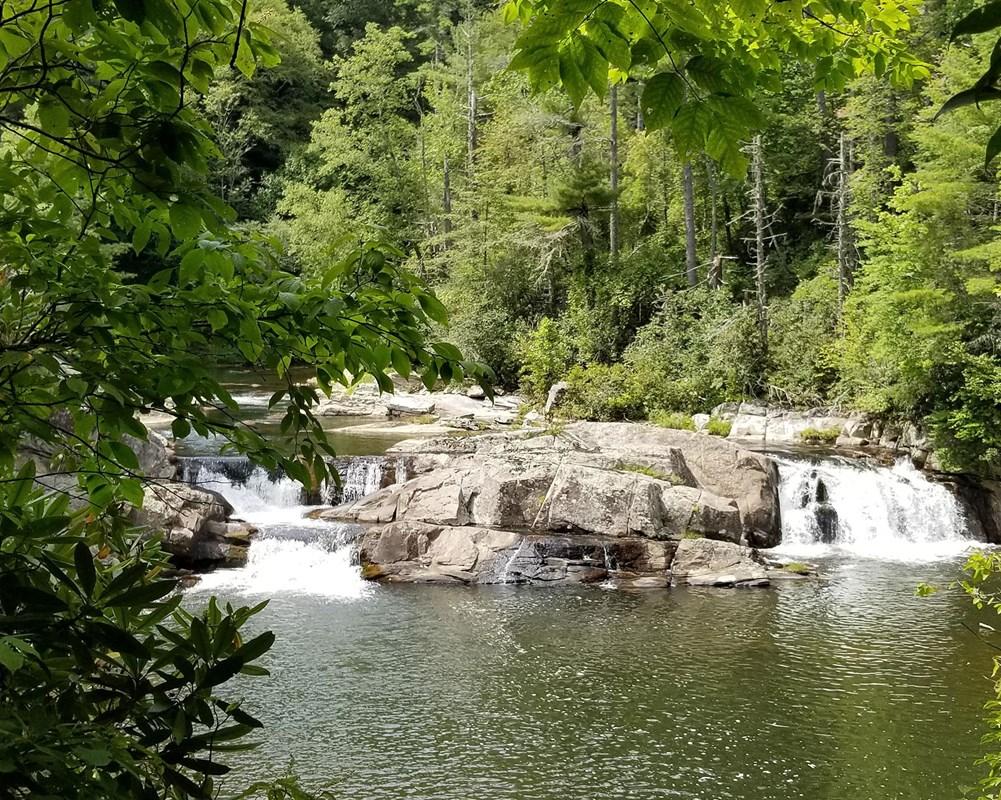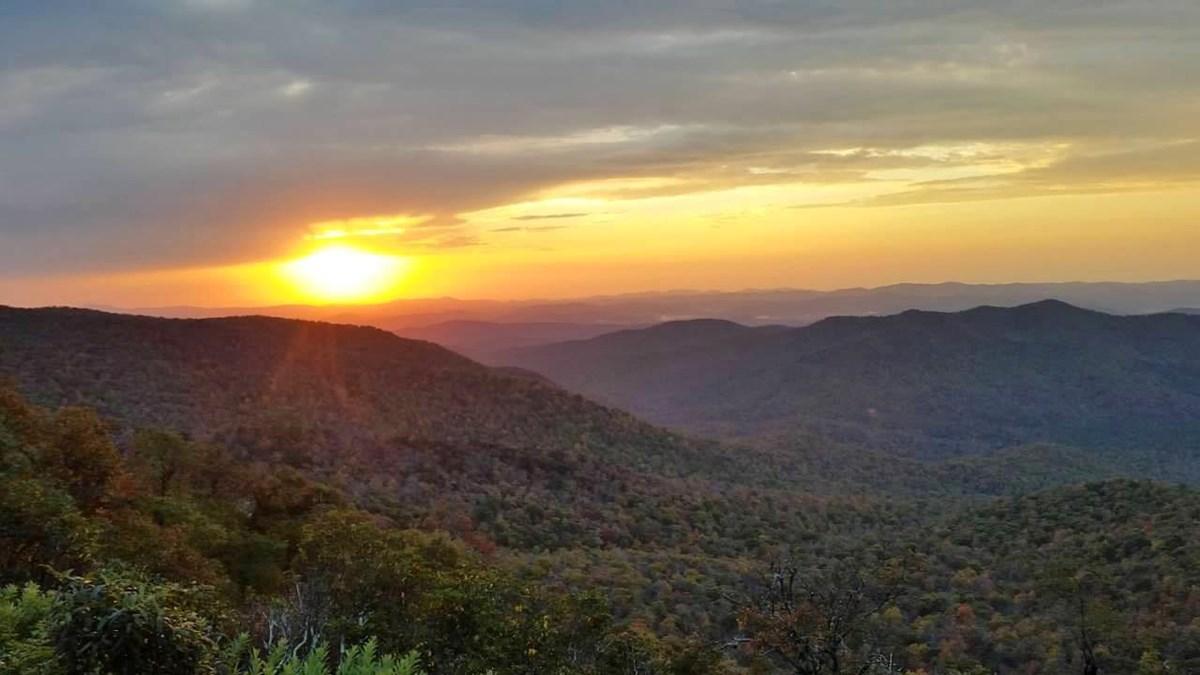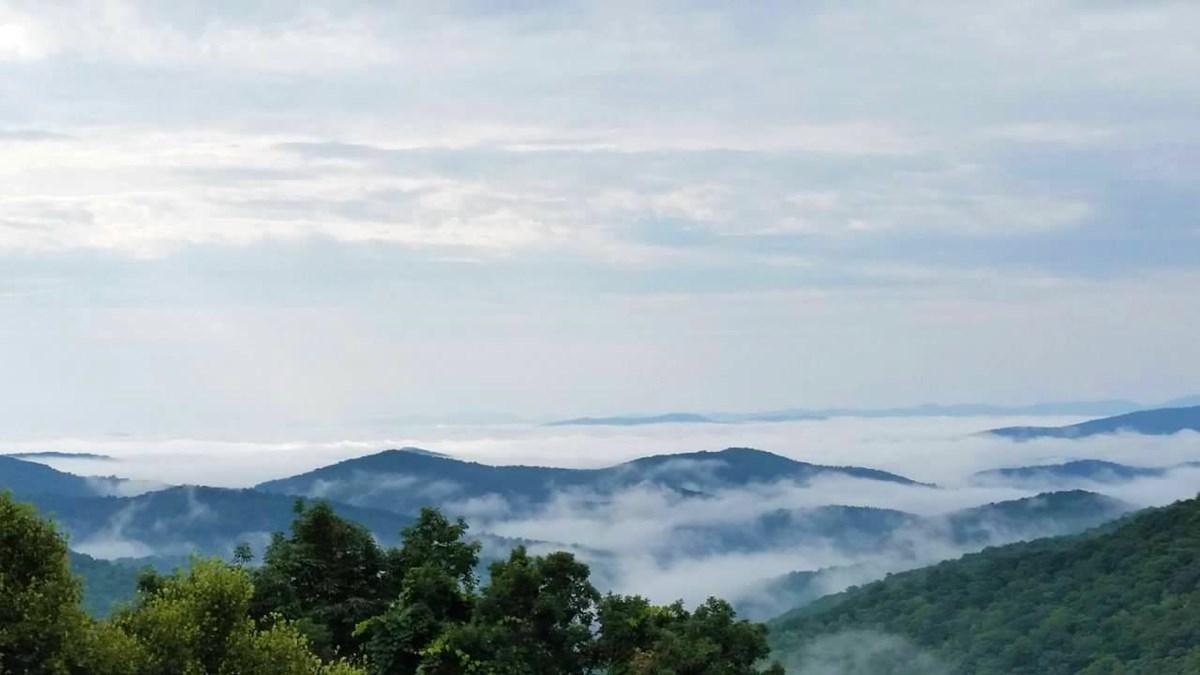
Pisgah National Forest: North Carolina's Natural Wonderland
Explore the unspoiled beauty of Pisgah National Forest in North Carolina, where outdoor adventure meets breathtaking landscapes and rich biodiversity.
Pisgah National Forest is a vast expanse of wilderness located in the Appalachian Mountains of North Carolina. This lush forest encompasses more than 500,000 acres of protected land, offering an incredible array of outdoor activities and natural beauty. Visitors can hike through dense woodlands, explore cascading waterfalls, and take in breathtaking mountain views. The forest is home to some of the highest peaks in the eastern United States, including Mount Mitchell, the tallest peak east of the Mississippi River. Pisgah National Forest is also renowned for its rich biodiversity, providing a habitat for countless species of plants and animals. Birdwatchers and wildlife enthusiasts will find ample opportunities to observe the local fauna. Outdoor adventurers can enjoy a variety of recreational activities such as camping, fishing, and mountain biking. The forest's extensive trail system includes famous routes like the Appalachian Trail and the Blue Ridge Parkway. Visitors can also discover historic sites and cultural landmarks scattered throughout the forest, adding a touch of history to their nature-filled journey.
Local tips in Pisgah National Forest
- Check the weather before heading out, as conditions can change rapidly in the mountains.
- Visit in the fall to experience the stunning autumn foliage.
- Bring a map and compass, as cell service is limited in many areas of the forest.
- Wear sturdy hiking boots for the rugged trails.
- Pack plenty of water and snacks, especially for longer hikes.
- Obtain any necessary permits for camping or fishing in advance.
Pisgah National Forest: North Carolina's Natural Wonderland
Pisgah National Forest is a vast expanse of wilderness located in the Appalachian Mountains of North Carolina. This lush forest encompasses more than 500,000 acres of protected land, offering an incredible array of outdoor activities and natural beauty. Visitors can hike through dense woodlands, explore cascading waterfalls, and take in breathtaking mountain views. The forest is home to some of the highest peaks in the eastern United States, including Mount Mitchell, the tallest peak east of the Mississippi River. Pisgah National Forest is also renowned for its rich biodiversity, providing a habitat for countless species of plants and animals. Birdwatchers and wildlife enthusiasts will find ample opportunities to observe the local fauna. Outdoor adventurers can enjoy a variety of recreational activities such as camping, fishing, and mountain biking. The forest's extensive trail system includes famous routes like the Appalachian Trail and the Blue Ridge Parkway. Visitors can also discover historic sites and cultural landmarks scattered throughout the forest, adding a touch of history to their nature-filled journey.
When is the best time to go to Pisgah National Forest?
Iconic landmarks you can’t miss
Mount Mitchell State Park
Discover the breathtaking beauty and outdoor adventures awaiting at Mount Mitchell State Park, the highest peak in the Eastern United States.

Linville Caverns, Inc
Discover the breathtaking beauty of Linville Caverns, an extraordinary underground wonder in North Carolina's Blue Ridge Mountains.
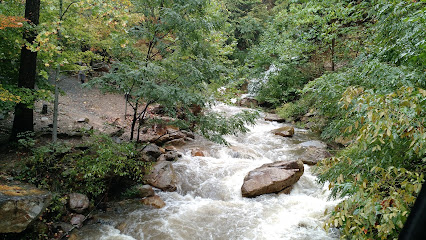
Looking Glass Falls
Experience the breathtaking beauty of Looking Glass Falls, a stunning waterfall in the Pisgah National Forest, perfect for hiking, photography, and family outings.
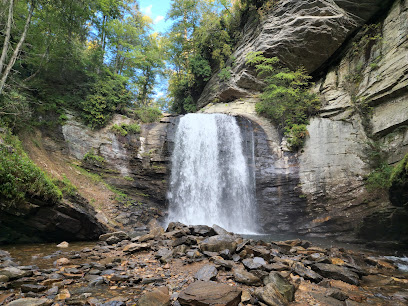
Craggy Gardens Visitor Center
Explore the enchanting Craggy Gardens Visitor Center, a gateway to the stunning landscapes and rich biodiversity of the Blue Ridge Parkway.
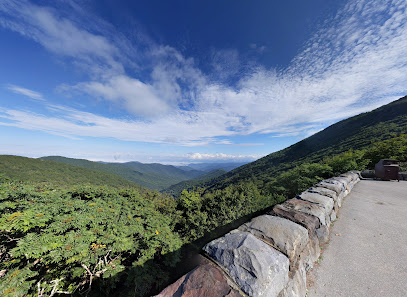
Sliding Rock
Discover the exhilarating Sliding Rock in Pisgah Forest, NC—a natural water slide perfect for thrill-seekers and families alike amidst stunning scenery.
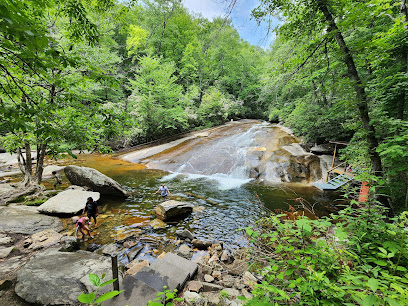
Catawba Falls
Discover the breathtaking beauty of Catawba Falls in North Carolina, a perfect destination for hiking and nature lovers seeking adventure and tranquility.
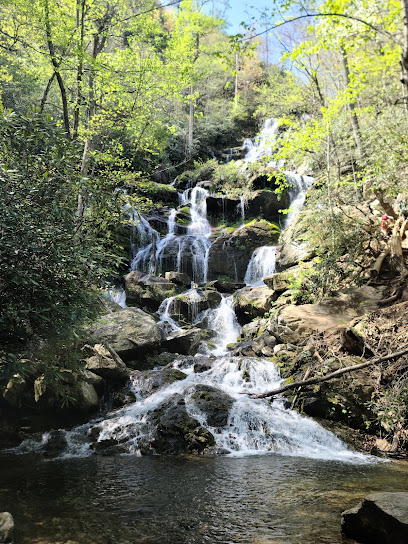
Craggy Pinnacle Hike
Discover the breathtaking views and natural beauty of Craggy Pinnacle Hike, a top hiking area in North Carolina's Blue Ridge Parkway.
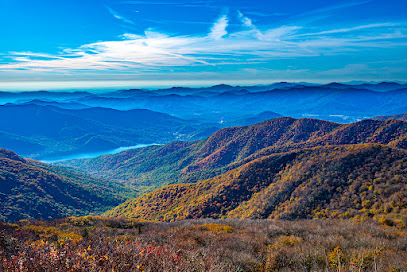
Cradle of Forestry in America
Explore the Cradle of Forestry in America, where history and nature intertwine in North Carolina's breathtaking landscapes.
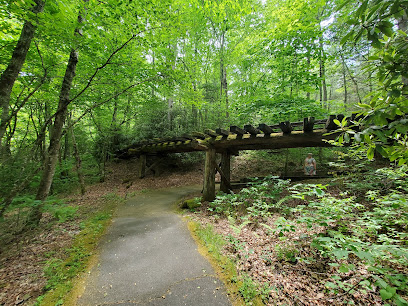
Tanbark Ridge Overlook
Experience the stunning beauty of the Appalachian Mountains at Tanbark Ridge Overlook, a serene spot along the Blue Ridge Parkway near Asheville, NC.
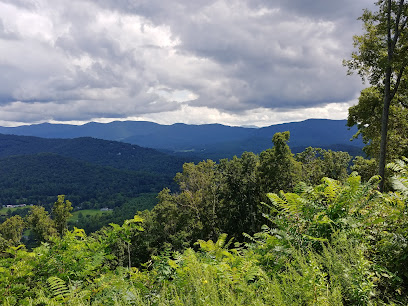
Craggy Pinnacle Summit
Experience breathtaking views and serene hiking trails at Craggy Pinnacle Summit in the stunning Blue Ridge Mountains of North Carolina.
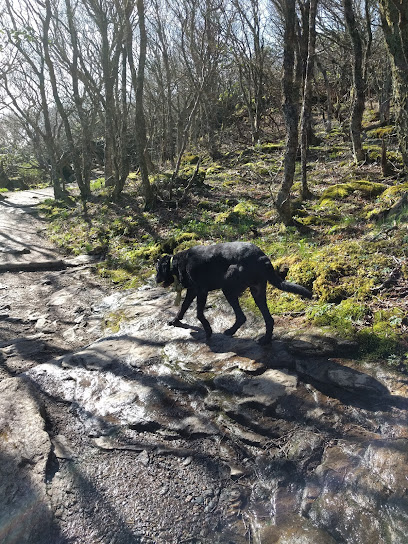
Haw Creek Valley Overlook
Discover the serene beauty of Haw Creek Valley Overlook, a scenic spot on the Blue Ridge Parkway perfect for nature lovers and photographers.
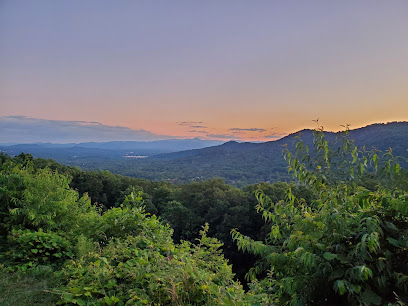
Crabtree Falls
Discover the breathtaking beauty of Crabtree Falls, a majestic waterfall nestled in the Blue Ridge Parkway, perfect for nature lovers and outdoor enthusiasts alike.
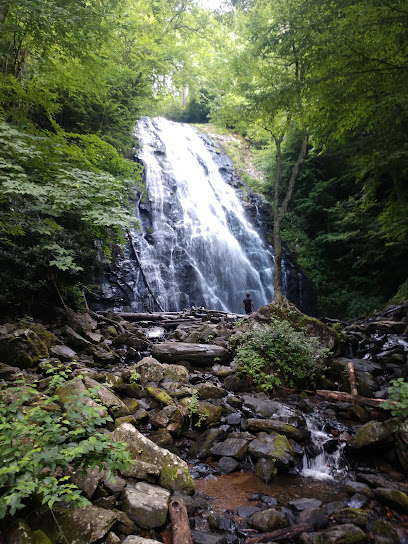
Craggy Gardens
Explore Craggy Gardens for stunning mountain views, diverse trails, and a serene escape into nature's beauty in the heart of the Blue Ridge.
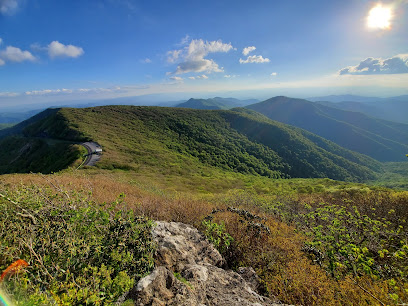
Looking Glass Rock Trailhead
Explore the breathtaking landscapes of Looking Glass Rock Trailhead in Brevard, NC, where adventure meets stunning natural beauty.
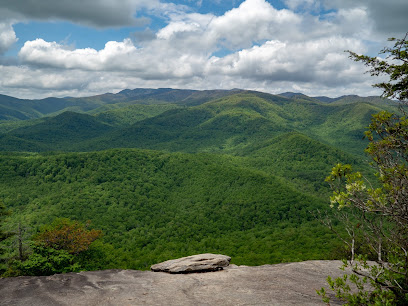
Green Knob Overlook
Experience the stunning views and serene nature of Green Knob Overlook, a hidden gem on the Blue Ridge Parkway, perfect for outdoor enthusiasts and photographers alike.
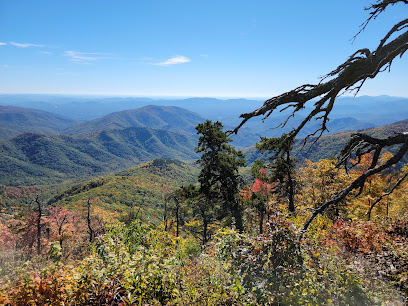
Unmissable attractions to see
Biltmore
Experience the majestic Biltmore Estate, a historical landmark and museum nestled in the stunning Blue Ridge Mountains of North Carolina.
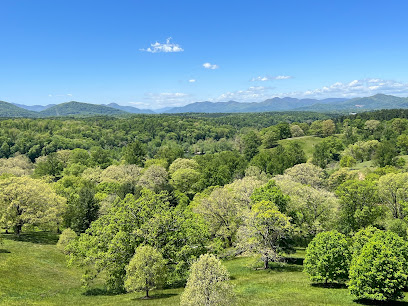
The North Carolina Arboretum
Discover the enchanting landscapes and vibrant gardens of The North Carolina Arboretum in Asheville, a haven for nature lovers and outdoor enthusiasts.
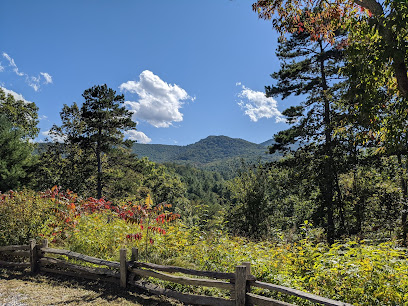
Grandfather Mountain State Park
Explore the natural beauty of Grandfather Mountain State Park, home to breathtaking views, diverse wildlife, and endless outdoor adventures in North Carolina.
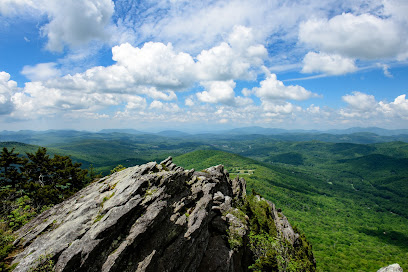
Mount Mitchell State Park
Experience the breathtaking views and diverse wildlife at Mount Mitchell State Park, the highest peak east of the Mississippi River.

The Blowing Rock
Discover the awe-inspiring views and rich folklore of The Blowing Rock, a premier destination in North Carolina's breathtaking Blue Ridge Mountains.
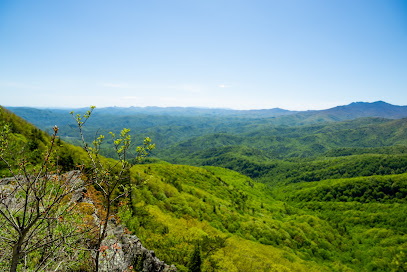
Linville Caverns, Inc
Unearth the wonders of Linville Caverns in North Carolina, where nature's beauty lies beneath the surface waiting to be explored.
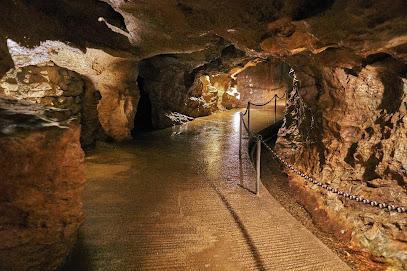
Looking Glass Falls
Experience the breathtaking beauty of Looking Glass Falls, a stunning waterfall in North Carolina's Pisgah National Forest, perfect for hiking and relaxation.
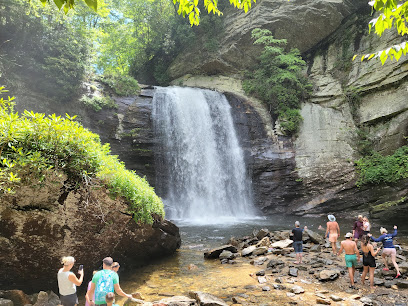
Navitat Canopy Adventures
Discover the thrill of ziplining through the treetops at Navitat Canopy Adventures, an outdoor gem in North Carolina's stunning landscape.
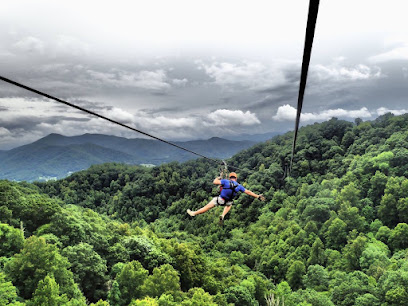
Lake James State Park
Discover the natural beauty and outdoor adventures waiting for you at Lake James State Park in North Carolina, a perfect getaway for nature enthusiasts.
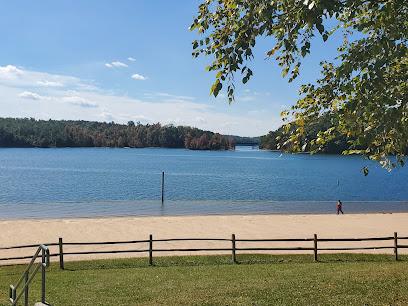
South Mountains State Park
Explore the serene beauty and diverse landscapes of South Mountains State Park in North Carolina, a perfect destination for outdoor adventures and relaxation.
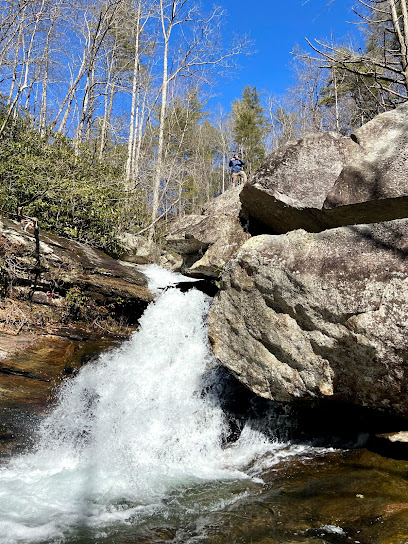
Lake James State Park
Explore the enchanting landscapes and outdoor adventures awaiting you at Lake James State Park, a true gem in North Carolina's natural beauty.
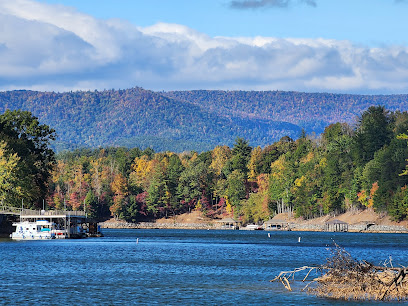
Craggy Gardens Visitor Center
Discover the natural splendor of North Carolina at Craggy Gardens Visitor Center, your gateway to the stunning Blue Ridge Parkway.
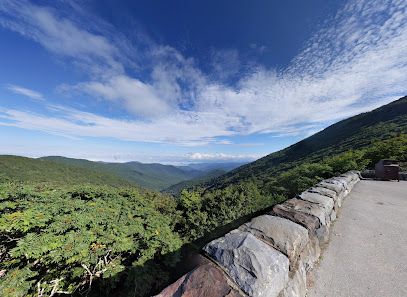
The Gorge Zipline
Discover the exhilarating experience of ziplining at The Gorge Zipline in Saluda, NC, where adventure meets breathtaking natural beauty.
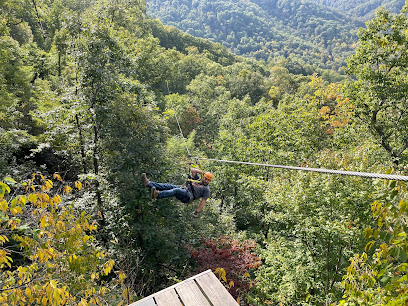
Sliding Rock
Experience the thrill of nature at Sliding Rock, a breathtaking natural water slide in Pisgah National Forest, North Carolina.
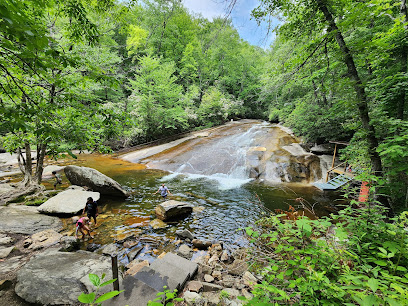
Carrier Park
Experience the beauty and tranquility of Carrier Park in Asheville, NC - a perfect blend of outdoor adventure and serene landscapes.
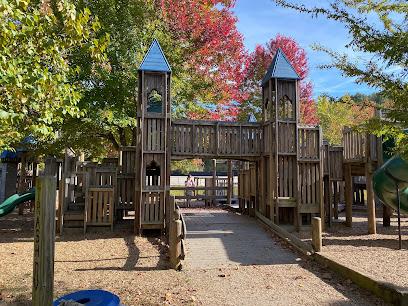
Essential places to dine
Hawg Wild Smokehouse & Taproom
Discover authentic Southern barbecue at Hawg Wild Smokehouse & Taproom in Pisgah Forest—where every bite tells a story of flavor and tradition.
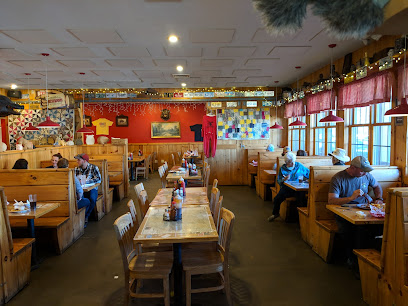
Pisgah Fish Camp
Discover fresh seafood delights at Pisgah Fish Camp nestled in scenic Pisgah Forest, perfect for nature lovers and food enthusiasts alike.
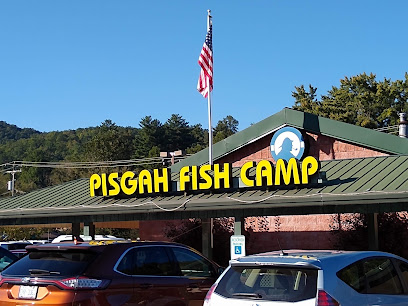
Bush Farmhouse
Discover the charm of Bush Farmhouse in Black Mountain—where rustic ambiance meets exceptional Southern cuisine.
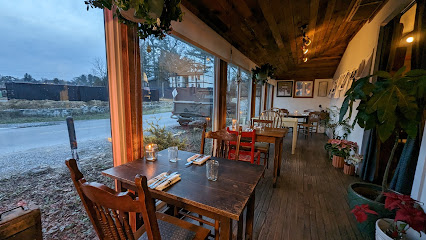
Hawtree's Pub and Grill
Experience delicious grill cuisine with stunning views at Hawtree's Pub and Grill in North Carolina.
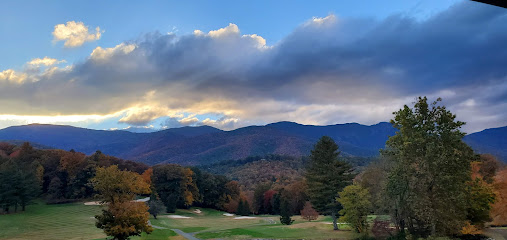
Markets, malls and hidden boutiques
Antique Tobacco Barn
Uncover a world of vintage treasures at the Antique Tobacco Barn in Asheville, NC – a paradise for antique enthusiasts and treasure hunters.

Elijah Mountain Gem Mine And Crystal Store
Explore the magical world of gemstones and crystals at Elijah Mountain Gem Mine, a family-friendly destination in Hendersonville, North Carolina.
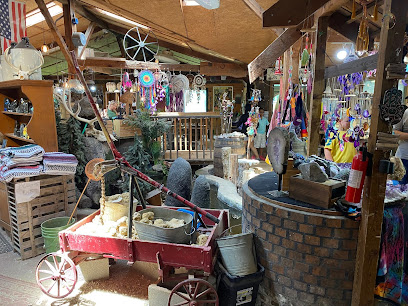
The Hub and Pisgah Tavern
Explore Pisgah Forest with bike rentals, repairs, and enjoy local brews at The Hub and Pisgah Tavern, your outdoor adventure hub.

Pisgah Forest Gem Mine & Gifts
Uncover sparkling treasures and unique mountain crafts at Pisgah Forest Gem Mine & Gifts, a must-visit destination in Hendersonville, NC.

Hickory Nut
Explore Hickory Nut, a charming gift shop in Chimney Rock offering unique local crafts and souvenirs with stunning mountain views.
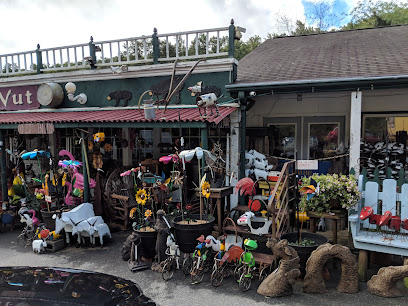
Honey & the Hive
Explore the sweet world of Honey & the Hive in Weaverville, NC – a boutique, honey farm, and educational experience all in one!
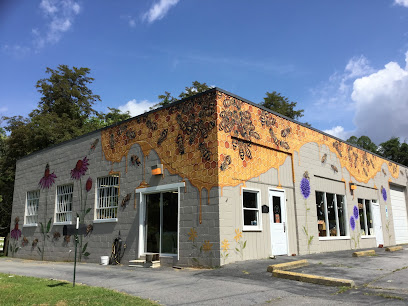
Rocks & Things
Explore a treasure trove of crystals, antiques, and handcrafted jewelry in the heart of Spruce Pine, North Carolina.
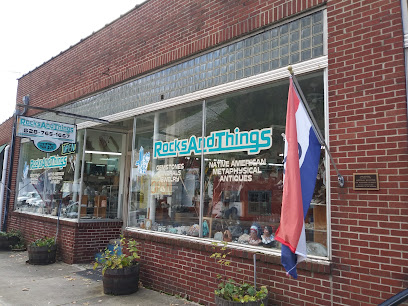
Maggie B's Wine & Specialty Store
Explore a curated selection of fine wines and gourmet sandwiches at Maggie B's Wine & Specialty Store in Weaverville, NC.

Curio
Discover Curio, Asheville's whimsical toy store, filled with delightful treasures for all ages in a charming downtown setting.

Madam Clutterbucket's Neurodiverse Universe
Discover unique gifts and handcrafted treasures that celebrate neurodiversity at Madam Clutterbucket's Neurodiverse Universe in Asheville, NC.

White Squirrel Shoppe
Explore the charm of Brevard at White Squirrel Shoppe, your go-to destination for unique gifts and local artisan crafts.

Whist
Discover unique gifts and local treasures at Whist, Asheville's charming gift shop that celebrates creativity and craftsmanship.

Villagers
Discover a serene retreat at Villagers Garden Center, where nature meets wellness with exquisite plants and natural goods for every traveler.
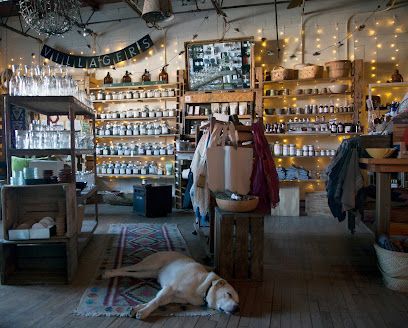
Vintage Market Marion
Explore Vintage Market Marion, a charming antique store filled with unique treasures and local art, perfect for collectors and casual shoppers alike.

Sparkling Clean Antiques
Explore Sparkling Clean Antiques in Burnsville, NC – a treasure trove of unique vintage finds and timeless collectibles for every enthusiast.

Essential bars & hidden hideouts
Stone Ridge Tavern
Discover the heart of American cuisine at Stone Ridge Tavern in Asheville, where local flavors meet friendly service in a charming atmosphere.
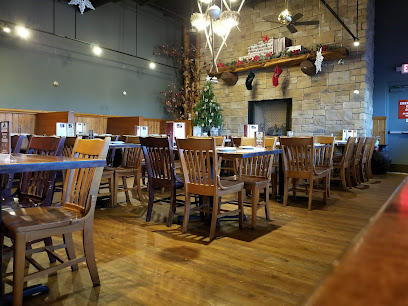
Off The Wagon Dueling Piano Bar Asheville
Discover the lively atmosphere of Off The Wagon Dueling Piano Bar in Asheville, where live music and fun collide for an unforgettable night out.

Trailhead Restaurant & Bar
Experience the best of American cuisine at Trailhead Restaurant & Bar in Black Mountain, where local flavors meet a cozy atmosphere.

Jack of the Wood
Experience the best of Irish culture and craft beer at Jack of the Wood in Asheville, where live music and delicious cuisine await.
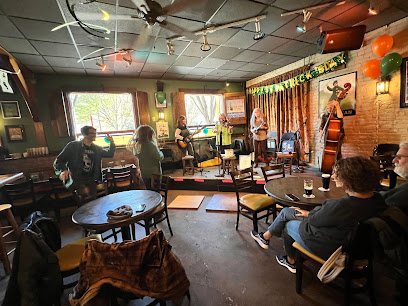
Hawg Wild Smokehouse & Taproom
Savor the best Southern barbecue at Hawg Wild Smokehouse & Taproom, where smoky flavors and local brews create an unforgettable dining experience.
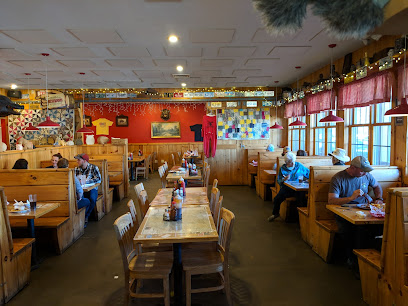
Foggy Mountain Brew Pub
Discover the heart of Asheville at Foggy Mountain Brew Pub, where craft beer meets delicious pub cuisine in a lively atmosphere.

Rankin Vault Cocktail Lounge
Experience the blend of history and modern mixology at Rankin Vault Cocktail Lounge in the heart of Asheville's vibrant nightlife.

The Odd
Unwind at The Odd, a lively bar and restaurant in Asheville known for its delicious food, craft drinks, and vibrant live music scene.

The Montford Rooftop Bar
Discover breathtaking views and innovative cocktails at The Montford Rooftop Bar, Asheville's premier destination for unforgettable evenings.

Pillar Rooftop Bar
Discover the ultimate rooftop experience at Pillar Rooftop Bar in Asheville, featuring stunning views, crafted cocktails, and a vibrant atmosphere.

Asheville Yacht Club
Experience the vibrant local culture at Asheville Yacht Club, a cozy bar and restaurant offering local craft beers and delicious bites in the heart of Asheville.

Silverados
Discover the vibrant nightlife at Silverados, Black Mountain's premier bar and live music venue, perfect for entertainment and relaxation.
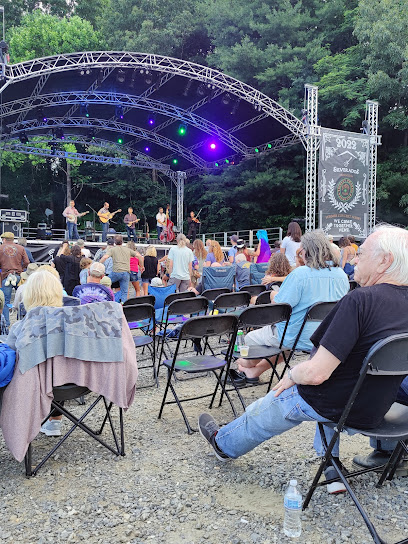
Top of the Monk
Discover Top of the Monk: Asheville's premier cocktail bar blending vintage charm with modern mixology in a speakeasy-inspired setting.

The Village Porch
Discover the vibrant atmosphere of The Village Porch, Woodfin's premier sports bar with delicious food, drinks, and live sports action.

Banks Ave Bar
Experience the vibrant nightlife of Asheville at Banks Ave Bar, where fun, entertainment, and local culture come together for an unforgettable evening.

Local Phrases about Pisgah National Forest
-
- HelloHowdy
[haw-dee] - GoodbyeSee ya
[see ya] - YesYessir
[yes-sir] - NoNope
[nope] - Please/You're welcomePlease and thank you
[please and thank you] - Thank youMuch obliged
[much uh-blahy-jed] - Excuse me/SorryPardon me
[pahr-dn me] - How are you?How y'all doin'?
[how y'all doin'] - Fine. And you?Good. How 'bout you?
[good. how 'bout you] - Do you speak English?Y'all speak English?
[y'all speak english] - I don't understandI reckon I don't follow ya
[I reckon I don't follow ya]
- HelloHowdy
-
- I'd like to see the menu, pleaseI'd like to check the grub options, please
[I'd like to check the grub options, please] - I don't eat meatI don't eat critters
[I don't eat critters] - Cheers!Bottoms up!
[bottoms up] - I would like to pay, pleaseI reckon I'll settle up, please
[I reckon I'll settle up, please]
- I'd like to see the menu, pleaseI'd like to check the grub options, please
-
- Help!I need a hand!
[I need a hand] - Go away!Git outta here!
[Git outta here] - Call the Police!Ring up the Sheriff!
[Ring up the Sheriff] - Call a doctor!Fetch the sawbones!
[Fetch the sawbones] - I'm lostI'm turned around
[I'm turned around] - I'm illI'm feeling poorly
[I'm feeling poorly]
- Help!I need a hand!
-
- I'd like to buy...I'm fixin' to purchase...
[I'm fixin' to purchase] - I'm just lookingI'm just browsin'
[I'm just browsin'] - How much is it?What's the damage?
[What's the damage] - That's too expensiveThat's mighty steep
[That's mighty steep] - Can you lower the price?Can ya do better on the tag?
[Can ya do better on the tag]
- I'd like to buy...I'm fixin' to purchase...
-
- What time is it?What's the time of day?
[What's the time of day] - It's one o'clockIt's one by the clock
[It's one by the clock] - Half past (10)Half past ten
[Half past ten] - MorningMornin'
[Mornin'] - AfternoonAfternoon
[Afternoon] - EveningEvenin'
[Evenin'] - YesterdayYestiddy
[yestiddy] - TodayToday
[Today] - TomorrowTomorry
[tomorry] - 1One
[One] - 2Two
[Two] - 3Three
[Three] - 4Four
[Four] - 5Five
[Five] - 6Six
[Six] - 7Seven
[Seven] - 8Eight
[Eight] - 9Nine
[Nine] - 10Ten
[Ten]
- What time is it?What's the time of day?
-
- Where's a/the...?Where's the...
[Where's the...] - What's the address?What's the holler?
[What's the holler] - Can you show me (on the map)?Can you point it out (on the map)?
[Can you point it out (on the map)] - When's the next (bus)?When's the next hauler?
[When's the next hauler] - A ticket (to ....)A pass (to ....)
[A pass (to ....)]
- Where's a/the...?Where's the...
History of Pisgah National Forest
-
Long before European settlers arrived, the land that is now Pisgah National Forest was inhabited by the Cherokee people. The Cherokee utilized the forest for hunting, fishing, and gathering, and it played a significant role in their culture and daily life. The forest was part of their vast territory and held spiritual significance, with many trails and sacred sites scattered throughout the area.
-
In the late 18th and early 19th centuries, European settlers began moving into the region, leading to the forced removal of the Cherokee people during the Trail of Tears in the 1830s. The land underwent significant changes as settlers established farms, logging operations, and small communities. By the mid-1800s, much of the forest had been heavily logged.
-
Pisgah National Forest was established in 1916, making it one of the first national forests in the eastern United States. This was largely due to the efforts of George W. Vanderbilt, who owned the Biltmore Estate near Asheville. Vanderbilt hired Frederick Law Olmsted and Gifford Pinchot to manage his vast forest holdings, which later became part of the national forest. Pisgah National Forest was created to conserve the land and reforest areas that had been heavily logged.
-
Pisgah National Forest is home to the Cradle of Forestry in America, the site of the first school of forestry in the United States. Established in 1898 by Carl A. Schenck, a German forester hired by George W. Vanderbilt, the Biltmore Forest School trained the first generation of American foresters. Today, the Cradle of Forestry is a historic site and educational center, offering exhibits and programs about the history of forestry and conservation.
-
During the Great Depression, the Civilian Conservation Corps (CCC) played a crucial role in developing Pisgah National Forest. From 1933 to 1942, the CCC built roads, trails, and recreational facilities, and undertook reforestation projects. Many of the structures and trails built by the CCC are still in use today, and their work helped shape the forest into a popular destination for outdoor enthusiasts.
-
The Blue Ridge Parkway, a scenic highway that runs through Pisgah National Forest, was constructed between 1935 and 1987. It is one of the most visited units of the National Park System. The parkway offers stunning views of the Appalachian Mountains and provides access to numerous hiking trails, waterfalls, and overlooks within the forest. The construction of the Blue Ridge Parkway played a significant role in boosting tourism and accessibility to Pisgah National Forest.
-
In recent decades, conservation efforts have continued to play a key role in maintaining Pisgah National Forest's ecological health. Organizations like the Forest Service, local conservation groups, and volunteers work together to preserve the forest's biodiversity, protect water quality, and restore habitats. These efforts ensure that Pisgah National Forest remains a vital natural resource for future generations to enjoy.
Pisgah National Forest Essentials
-
Pisgah National Forest is located in western North Carolina. The closest major airport is Asheville Regional Airport (AVL), approximately 20 miles away from the forest's boundary. From the airport, you can rent a car or take a taxi to reach the forest. If driving from other major cities, Pisgah National Forest is accessible via Interstate 40 and U.S. Route 276.
-
The best way to explore Pisgah National Forest is by car, as public transport within the forest is limited. Many of the forest's trails, waterfalls, and scenic drives can be accessed via well-maintained roads. If you prefer not to drive, guided tours are available. Bicycles are also a popular way to navigate the forest, especially for those looking to explore its extensive trail network.
-
The official currency is the United States Dollar (USD). Credit and debit cards are widely accepted in nearby towns and at major attractions within the forest. However, it is advisable to carry some cash, particularly if you plan to visit more remote areas or small local shops and vendors. ATMs can be found in nearby towns such as Asheville and Brevard.
-
Pisgah National Forest is generally safe for tourists, but standard precautions should be taken. Lock your car and secure valuables out of sight. Be cautious when hiking alone, and always let someone know your itinerary. While there are no specific high-crime areas targeting tourists, it is always best to stay vigilant and aware of your surroundings. Wildlife, including bears, can be encountered, so follow all safety guidelines posted in the forest.
-
In case of emergency, dial 911 for immediate assistance. The nearest hospitals and medical facilities are located in Asheville. It is recommended to have travel insurance that covers medical emergencies. For minor health issues, carry a first aid kit and know the location of the nearest ranger station for assistance. Always bring a map, compass, and sufficient supplies, especially if venturing into remote areas.
-
Fashion: Do wear comfortable and weather-appropriate clothing. Sturdy hiking boots are recommended for trails. Avoid wearing flip-flops or open-toed shoes. Religion: There are no specific religious customs to follow in the forest, but respect any cultural or historical sites you visit. Public Transport: Public transport options are limited; renting a car or a bicycle is more practical. Greetings: When encountering fellow hikers, a friendly nod or greeting is common. Eating & Drinking: Do pack out all trash and food waste. Don't feed wildlife, as it can be harmful to their health and safety.
-
To experience Pisgah National Forest like a local, visit the Cradle of Forestry, which offers a glimpse into the early history of forestry in the United States. Engage with locals at nearby farmers' markets in Asheville or Brevard, where you can find fresh produce and local crafts. Don't miss the chance to hike to Looking Glass Rock for a panoramic view or explore the Sliding Rock natural water slide for a fun and refreshing experience. Check out local festivals and events, such as the Mountain State Fair, to immerse yourself in the regional culture.
Trending Landmarks in Pisgah National Forest
-
Mount Mitchell State Park
-
Linville Caverns, Inc
-
Looking Glass Falls
-
Craggy Gardens Visitor Center
-
Sliding Rock
-
Catawba Falls
-
Craggy Pinnacle Hike
-
Cradle of Forestry in America
-
Tanbark Ridge Overlook
-
Craggy Pinnacle Summit
-
Haw Creek Valley Overlook
-
Crabtree Falls
-
Craggy Gardens
-
Looking Glass Rock Trailhead
-
Green Knob Overlook
Nearby Cities to Pisgah National Forest
-
Things To Do in Johnson City
-
Things To Do in Boone
-
Things To Do in Hickory
-
Things To Do in Greer
-
Things To Do in Spartanburg
-
Things To Do in Greenville
-
Things To Do in Mauldin
-
Things To Do in Gatlinburg
-
Things To Do in Pigeon Forge
-
Things To Do in Mooresville
-
Things To Do in Charlotte
-
Things To Do in Anderson
-
Things To Do in Rock Hill
-
Things To Do in Fort Mill
-
Things To Do in Knoxville





